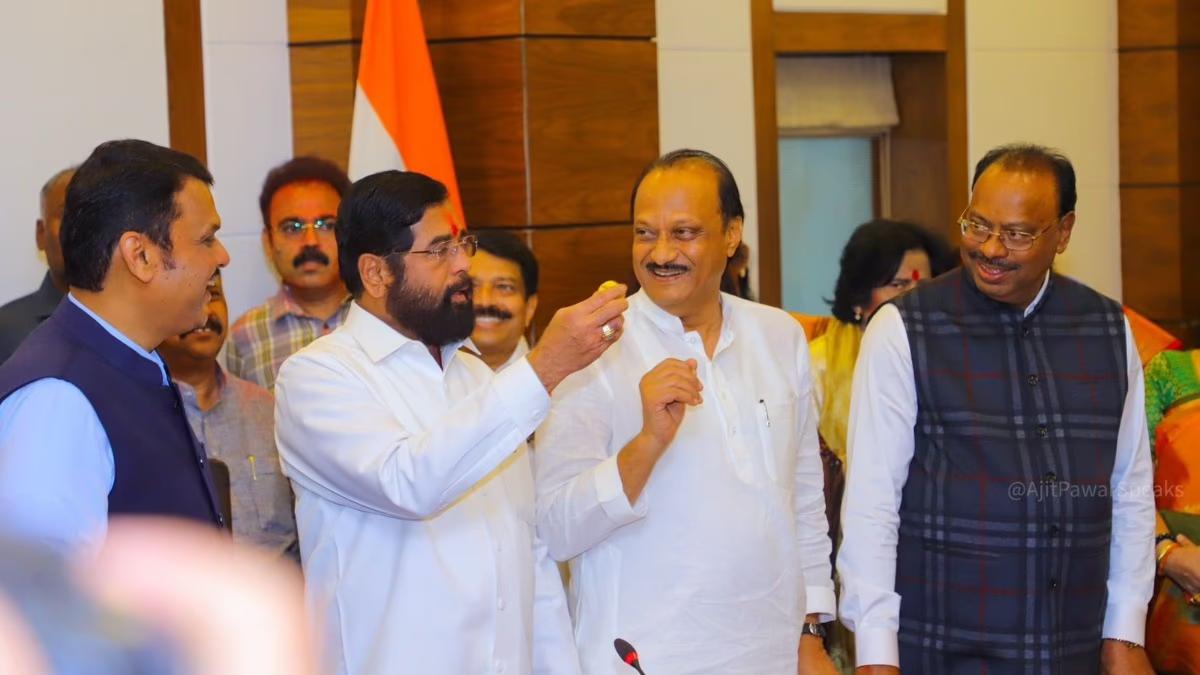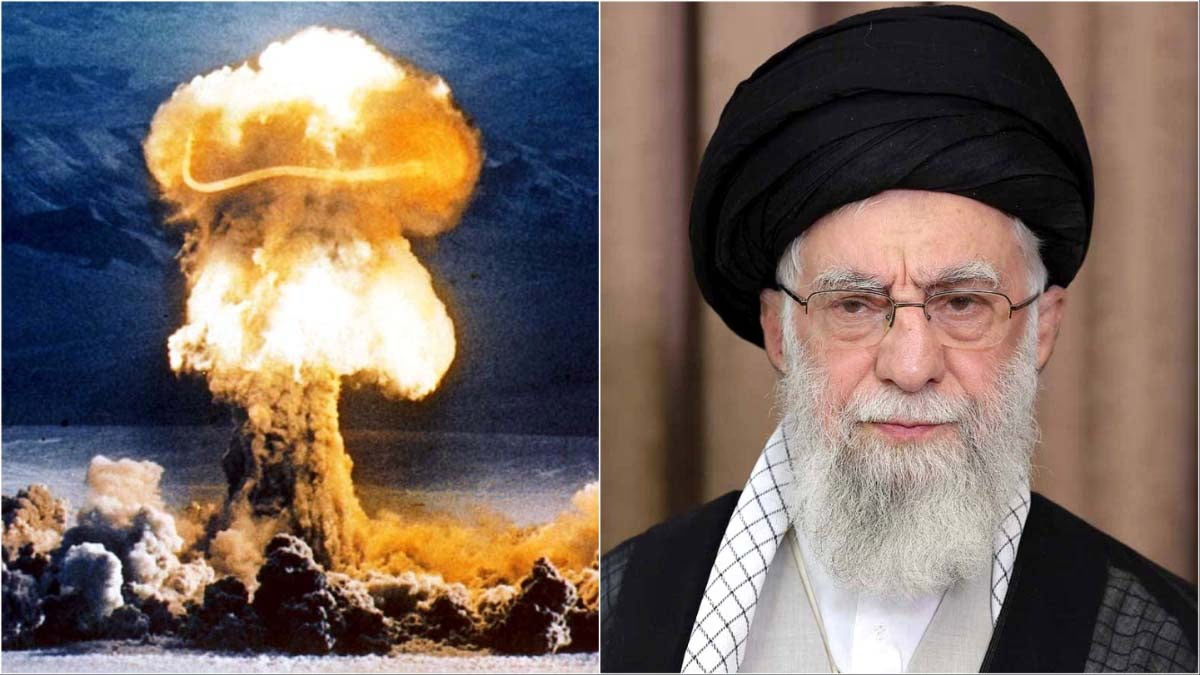The BJP-led Mahayuti coalition has secured a remarkable victory in the Maharashtra assembly elections, resulting in the Congress-led Maha Vikas Aghadi (MVA)'s defeat. The Mahayuti won 233 out of the 288 assembly seats, while the MVA was reduced to only 49 seats. The BJP contested 149 seats and triumphed in 132. This victory is monumental, with potential repercussions that indicate Maharashtra has become a laboratory for political change, potentially shaping national politics.
Let's explore the six major outcomes emerging from Maharashtra's political laboratory. This was the largest battle after the 2024 Lok Sabha elections, following the BJP's win in Haryana.
1. The Fate of Bills Including the Waqf Bill Will Be Decided
In the Lok Sabha elections, the BJP returned to power for the third time, even with reduced seats, but continued to govern with the aid of NDA allies. Prime Minister Narendra Modi's government has shown no weakness on reform fronts, expanding Ayushman Bharat health coverage and launching a joint pension scheme, though it softened its stance on initiatives like the lateral entry scheme and the Broadcasting Services (Regulation) Bill. The government bravely introduced the Waqf Bill, met with strong opposition from Muslim organizations and rival parties. The Waqf Bill was sent to a Joint Parliamentary Committee (JPC), which has now prepared its report.
The BJP's stellar performance in Maharashtra, following a historic win in Haryana, has bolstered the central government's confidence. The Modi government is now poised to advance the Waqf Bill with full confidence, aiming to reform the management of Waqf properties. This could further facilitate the progress of the Uniform Civil Code (UCC), rebranded by Prime Minister Modi as a secular civil code. Debates on the JPC report regarding the Waqf Bill might occur in the winter session.
2. Focus on Hindu Solidarity with the Slogan 'Together We Are Safe'
In the Lok Sabha elections, the BJP faced stiff competition. While opposition parties secured Muslim votes, the Congress campaign around caste census eroded BJP's votes. In the 2014 and 2019 general elections, the BJP succeeded in garnering votes across all castes and communities, which did not happen in 2024. Yet, in the Maharashtra assembly elections, the slogan 'Divide and Fall' resonated strongly. Fadnavis warned, "Divide and Fall." Meanwhile, campaigning in Dhule, PM Modi coined the slogan "Together We Are Safe." Concurrently, RSS involved 65 organizations in the campaign 'Stay Alert' to prevent the division of Hindu votes along caste lines. Thus, Maharashtra has become a laboratory for Hindutva 2.0, and the RSS-BJP's success in consolidating votes here might be replicated nationally.
3. BJP Ahead in Direct Face-Offs with Congress
The devastating loss of Congress in Maharashtra also demonstrates its inability to withstand direct competition with the BJP. The results of 76 seats in Maharashtra, where the two parties faced off directly, were closely watched. Of these, 36 were in Vidarbha, a region where the BJP-led Mahayuti won. The rise of the BJP and the decline of Congress in direct contests illustrate the strength and popularity of their organizational prowess. In direct contests with the BJP, Congress's strike rate improved from 8% in the 2019 Lok Sabha elections to 30% in 2024. Meanwhile, the BJP's strike rate fell from 92% to 70%. However, the narrative reversed in Haryana, where the BJP faced off against Congress and failed to secure a third consecutive government.
Congress lost in direct contests in Haryana and previously faced defeats in Madhya Pradesh, Gujarat, Chhattisgarh, and Rajasthan. Maharashtra's assembly election results further reinforce the notion that in direct contests, the BJP is far ahead of Congress. The outcomes confirm the BJP's position as a formidable electoral machinery, boosting the party's confidence as it gears up for the 2025 election cycle, starting with the Delhi assembly elections in February.
4. Congress Lost Influence in Negotiations with Allies
After a humiliating defeat in Haryana, calls of dissent against Congress within the India Block grew louder, which could further escalate after the party's massive loss in Maharashtra. In Haryana, Congress did not ally with its India Block partner, the Aam Aadmi Party (AAP). A Saamana editorial, the mouthpiece of the Uddhav faction, attributed Congress's Haryana loss to the "overconfidence and arrogance" of the state's leadership. In Maharashtra, Congress attempted to be a major player and did not let Uddhav Thackeray emerge as a CM face. Congress's poor performance in Maharashtra might incite rebellions among multiple India Block allies. The first challenge could arise from AAP, given the impending elections in Delhi as the next major test. In Jharkhand, Congress's win indicates its high reliance on regional allies. In Jharkhand, Congress was the junior partner to the Hemant Soren-led Jharkhand Mukti Morcha (JMM). The BJP stands out as a significant power center, maintaining NDA partners, while Congress proves weaker in retaining alliance partners.
5. A Mix of Populist Promises and Development
Major projects were at stake in Maharashtra. The Congress-led MVA tried to woo voters with promises of cash assistance, forcing Mahayuti to assure more cash guarantees in the Ladki Bahin scheme. Amongst the battle for revival, the NDA allies deftly combined infrastructure development with their promises. With Mahayuti back in power, they would advance the concreting of Mumbai roads, open parks at Mahalaxmi Race Course, and continue the Gargai Pinjal Water Projects, highlighted by Mahayuti partners.
Had the MVA toppled the Mahayuti government, it would have hindered the Dharavi Redevelopment project. Shiv Sena (UBT) leader Uddhav Thackeray indicated he would cancel the Adani Group's tender for redeveloping one of the world's largest slums, Dharavi. In a way, the results have determined the extent to which elections are influenced by populist concessions versus tangible on-ground development.
6. The Adani Issue and Expectations of Ruckus in the Winter Session
Congress MP and Leader of Opposition in the Lok Sabha, Rahul Gandhi, indicated an intense winter session beginning Monday (November 25). Rahul Gandhi plans to target the government on allegations against Gautam Adani, chairman of the Adani Group, in the US. However, following Congress's defeat in Maharashtra, their zeal to launch intense attacks is diminished. In every election rally, Congress leaders accused the Modi government of capitalism by linking it to Adani Group. Maharashtra's BJP landslide proves such allegations bear no electoral impact, as was true in past elections. Observing that such accusations fail to influence voters, the BJP may dismantle the opposition's attack.




